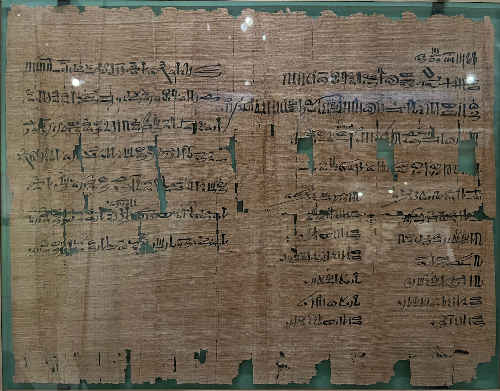Even Ancient Egyptians Wrote Wills!
Last July, I stumbled upon an ancient Will while visiting the Ashmolean Museum in Oxford. As an estate planning lawyer, I was delighted.

The Will, written in hieratic script on papyrus, was made by Naunakhte, an Egyptian woman who lived more than 3,000 years ago during the reign of King Ramesses V.
Her will is not only a historical treasure but also a remarkable testament to the importance of estate planning and the power of women in ancient Egypt to own, manage, and dispose of property. Naturally, I couldn’t resist doing some additional research about Naunakhte and her Will when I returned home.
It turns out that Naunakhte was married twice, first to a scribe and then to a tomb worker. She described herself as a “free woman,” which in ancient Egypt gave her equal rights as men to own and dispose of her property.
Naunakhte had eight children but she deviated from the conventional practice of equally distributing her property to all her offspring. Rather, she chose to disinherit three of them. She did this because she felt the three she disinherited hadn’t provided her with sufficient support in her old age. Furthermore, she gave an bonus gift, a bronze washing bowl, to one child. Complicated family relationships and favoritism have existed for millennia, it seems!
Her Will even included a provision that those who contested her Will would receive severe punishment, including a hundred blows and forfeiture of their property.
Naunakhte’s will isn’t just a relic from the past; it’s a timeless story of family dynamics, individual empowerment, and the enduring importance of estate planning.
In her own unique way, she serves as an example that even in ancient times, people were deeply concerned about protecting their assets and legacies and distributing their property according to their wishes.


Comments